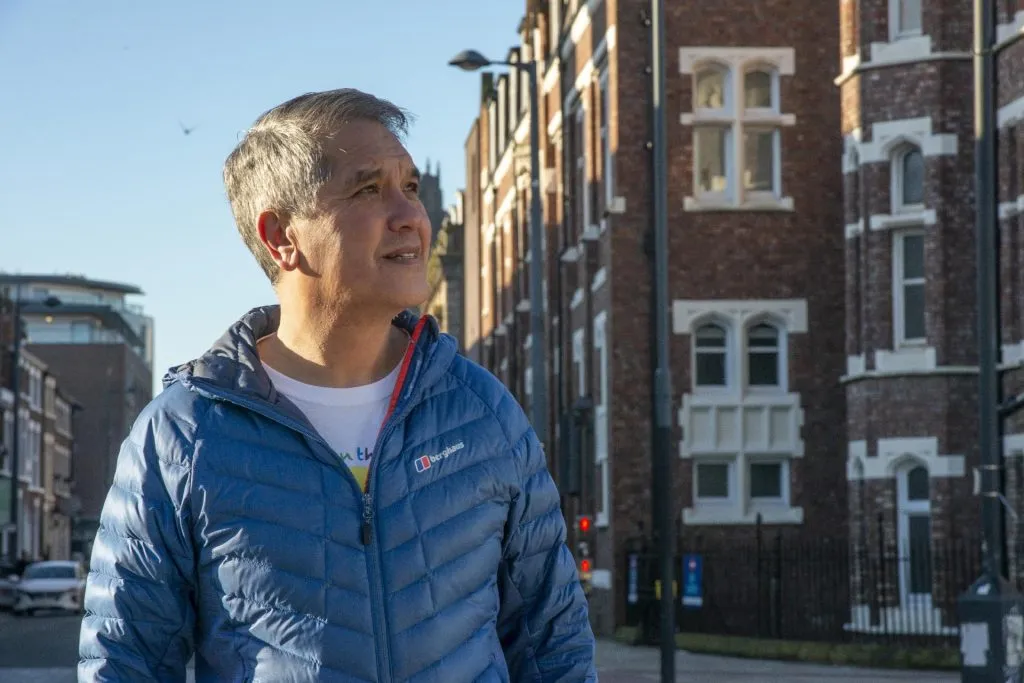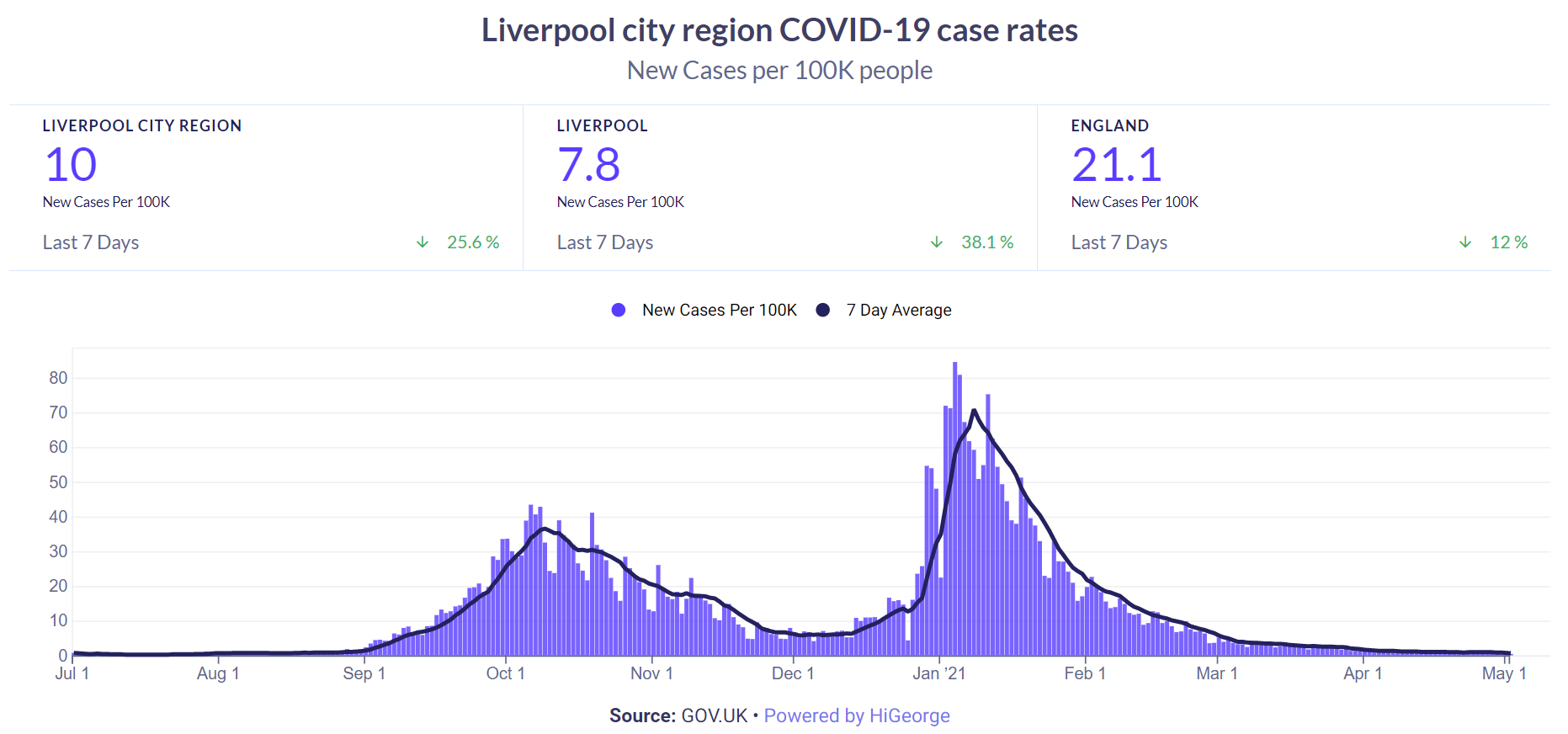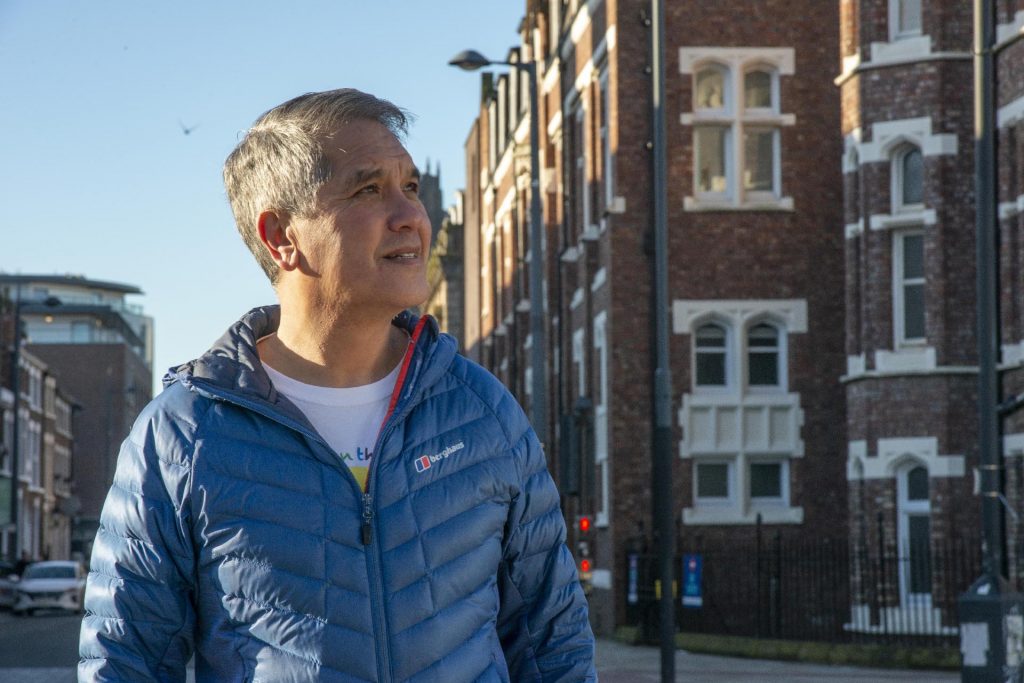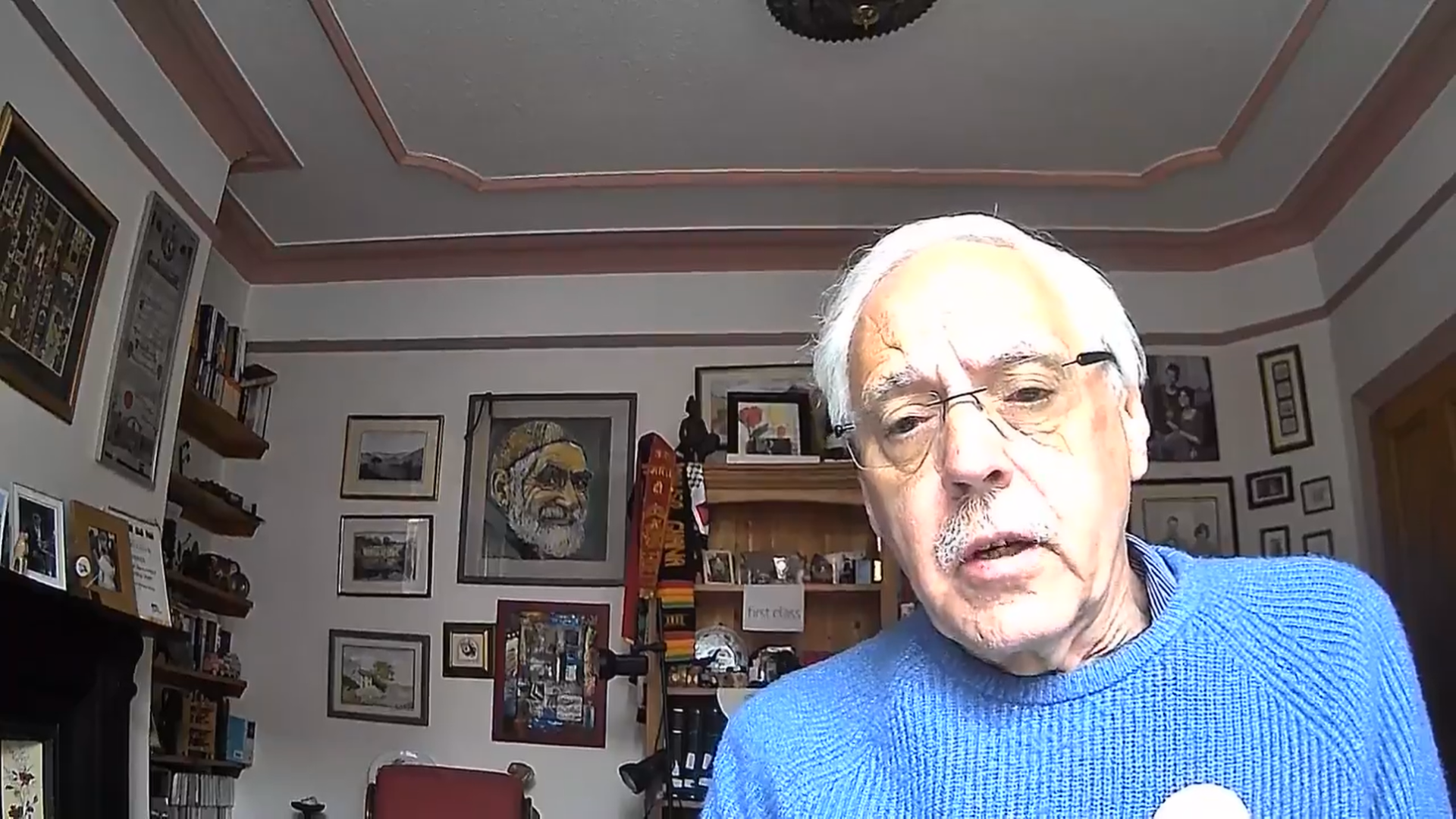Liverpool goes to the polls amidst a 'tsunami of discontent'

'It will be a bun fight for second place'
Dear Post readers, welcome to our Election Day newsletter!
Voters across Merseyside are going to the polls to elect local councillors and to cast their ballot for the next mayor of the city region. Below you will find some useful links about all those races, but we have decided to focus on the fascinating race to be city mayor of Liverpool — the role that Joe Anderson held from its creation in 2012 until earlier this year. That’s our main feature today.
If you find the newsletter useful, please do forward it to friends or use the share button below to share it via WhatsApp or on social media.
Mini-briefing
- Covid-19 update: Case rates (the number of new confirmed cases per 100,000 residents) in both Liverpool and across the city region are down to extraordinarily low levels now. The city region rate is 10, down 25.6% on the previous week. The Liverpool rate is 7.8, down 38.1%. Those rates compare with 21.1 for England as a whole, down 12%. See our dashboard below, which updates every day here.
- Liverpool party: We enjoyed the Guardian’s write-up of the pilot day-time rave held last week at an empty warehouse on the outskirts of Liverpool city centre, which really captured the joy of the occasion. “The event was also an opportunity for people to show off their carefully planned post-lockdown outfits. Ryan Moore, 25 and donning a green sequinned vest, said he’d had his outfit for the rave planned since he bought his ticket.” Read more.
- Worth a watch: Liverpool’s longest-running literature festival is back with a programme of online events. Guest speakers this year include poet Clare Shaw, writer and editor Nikesh Shukla, local poetry face Roger McGough, children’s author Michael Rosen and Booker Prize-winner Ben Okri. Full programme and further details here.
- Poetry walk: The team at The Reader at The Mansion in Calderstones Park have invited you to join them every Thursday from 11am until noon for a “restorative walk in the great outdoors” where you’ll be accompanied by some “nourishing poems.” These walks are a great way to socialise (safely) and get some fresh air, all set against the backdrop of sweeping green parkland and leafy gardens. The event is free but please book in advance.

Election briefing
Here’s a round-up of local election guides across the city region.
- Halton: Wards to Watch as Halton gets ready to go to the polls (Runcorn and Widnes World)
- Knowsley: Three issues that could decide key Knowsley Council election battle (Liverpool Echo)
- Sefton: Five issues that could sway the vote in Sefton (Liverpool Echo)
- St Helens: The key issues, what candidates are saying and all you need to know as St Helens heads to the polls (St Helens Star)
- Wirral: How Wirral council could change next week (Wirral Globe)
Plus, Sky News calls Liverpool’s council elections one of the races to watch, and BBC News has a look at the city region mayoral race.
By Joshi Herrmann and Beth Ure
The last time we spoke to Stephen Yip, in November last year, he was nervously preparing the crucial Christmas fundraising campaign for his charity Kind. The pandemic had made it much harder to raise money, and yet the deprived children that the charity supports needed more help than ever. It was going to be tough to scrape together the funds required to send out as many festive hampers as they wanted to.
Yip has been running Kind since 1975, and this was his 45th Christmas appeal. He told The Post his moving life story, growing up as the son of a Chinese seaman and becoming only the 63rd person to receive the Freedom of Liverpool since the late 19th century. But the theme he kept on coming back to in our interview — the thing you sensed he was proud of — was prudence. “Every pound donated is a pound spent,” he kept saying. “People know if they fund us they get value for money.”
Within days of that interview being published, Liverpool’s city mayor Joe Anderson was arrested on suspicion of conspiracy to commit bribery and witness intimidation. Yip says he was shocked “like everyone else” and that he spent the winter months talking to friends about the damage Liverpool’s leaders had done to the city. By the end of February, he had decided to run as an independent candidate in the race to replace Anderson, pledging to “rebuild confidence and pride".

When we spoke on the phone this week, Yip returned to his old theme — except this time it’s about running a city rather than a charity. “The one thing I do know about is how to look after money,” he told us. “I'd been moaning, like a lot of people in Liverpool, and someone said: ‘run or shut up,’” says Yip. “There is a tsunami of discontent across this city.”
The recent inspection report by Max Caller suggested around £100 million of public money has been wasted because of a “serious breakdown of governance” in Liverpool, which included the awarding of “dubious contracts” and a lack of record-keeping in key departments. The scandal has made for an unusual campaign, dominated by one issue, which all the candidates are running on: cleaning up the council and restoring the city’s reputation.
“We're a bit of a laughing stock,” says Yip, referring to that reputation. He wants to bring in the respected campaign group Transparency International to implement systems in Liverpool that will keep decision-makers accountable. “Some of our councillors haven't updated their registers of interests for six years,” he says. “Some of them are just saying 'self-employed' or 'private consultant.’” The watchwords of his campaign are “transparency, accountability and oversight.”
But can he win? On paper, you would probably say no. He has a small campaign team of 12 rather than a party machine with canvassers all over the city. Yip has self-funded the majority of the costs himself, estimating that he has reduced his pension pot by about £10,000. “I'm 66 — I don't need this, really,” he says, laughing. “This is not a career for me.” But the unusual circumstances of this election — impacted by Covid-19 restrictions and taking place in the vast political void created by Anderson’s arrest —make the result highly unpredictable. “I think we are in a battle for second, and I think if we come second we will win,” says Yip’s campaign manager Jon Egan, who thinks his man would pick up lots of second preference votes in the Supplementary Vote system used for the mayoralty. “If Kemp [the Liberal Democrat candidate] edges us out of second place, Labour will win easily,” he says, describing it as the “weirdest election” he has worked on.

Egan is a veteran of Labour politics in the city, who is helping Yip to run against his old party. He was Labour’s regional officer in the run-up to Tony Blair’s landslide in 1997, and also worked for the council around the same time, as chief of staff to the leader. “This was a council that was the wild west,” he says, “It was a law unto itself.” He recalls lobbyists having access “across the building” and glaring conflicts of interest. Egan has been struck by the lack of contrition on behalf of Labour candidates during this campaign. “I've heard Labour people saying they can't apologise for Joe because the Labour power brokers will turn against them,” he told The Post.
The aforementioned Kemp, who has been a Lib Dem councillor in Liverpool for 38 years and broadcasts his views via regular videos on his Twitter feed, sees himself as an expert on failing councils. He’s picked through the guts of some of the worst city governance in the country as an inspector for the Audit Commission, writing official reports on councils in Walsall, Hull, Doncaster and Islington. His pitch to voters today is that he knows what goes wrong when local government fails, and he can turn things around in Liverpool.
So what does go wrong? He goes through the stages. Stage one is that “People lose their vision for their area and think they have a right to govern.” Then, he says, “Councillors become entrenched and manipulate the flow of information and scrutiny.” Stage three is when “The good officers disappear, so you end up with poor quality councillors and poor quality officers.” All three seem to have cropped up in Liverpool. “Seven of our former officers have now been arrested,” he says. “It's absolutely unheard of in local government in this country.”
Kemp hopes that his party will make three or four gains in the council elections today, and like all the candidates in the mayoral race, he is planning to abolish the role he is running for. He says he would initiate a consultation to scrap the position, which he has been arguing against for the best part of a decade. “I said in 2012 that in Liverpool you won't get a mayor, you will get an emperor, and that is what we got,” he told The Post. “If all the power ends up in one pair of hands, which it does in the mayoral system, you end up with boss style politics.” How would he characterise so-called “boss politics” in the city? “It’s Chicago,” he answers quickly — as if the comparison was at the top of his mind. “It's aggressive, it's loutish, it uses its mouth more than its ears, and it doesn't relate to the ordinary people of the city.”
Stuart Wilks-Heeg, a politics lecturer at the University of Liverpool, says that it makes sense that the mayoral position should disappear with Anderson’s demise. “The role of mayor in the city was created by Joe Anderson, for Joe Anderson,” he says. “He used it to basically centralise power around himself.” Anderson denies the charges against him and says he looks forward to being able to vindicate himself, but he admitted in an interview with Channel 4 earlier this year that his political career is probably over.
Campaigning in Cressington tonight.
— Joanne Anderson (@Joanne4Mayor) 7:08 PM ∙ May 4, 2021
Fighting for every last vote! 🗳
Labour’s candidate Joanne Anderson, no relation to Joe, says on her website that she sees the events of the past six months “as a springboard to improving our culture, transforming how we do things and providing a new, fresh approach for our city.” Anderson (who didn’t speak to The Post for this story) is a business consultant and a councillor in the Princes Park ward for just two years, meaning that she isn’t tainted by the failures of the city’s leadership.
If elected, she would be the first black woman to lead a British city, and “Let’s make history!” has become her campaign’s rallying cry. And while she may be a political novice, Anderson still has the might of the Labour campaigning machine behind her in a city the party has dominated since 2010, meaning it would be a massive surprise if she didn’t make the final two today.
Were she to win, she would be leading a city whose politics could prove extremely volatile. For more than a decade, the determining political dynamic in the city has been the power around Joe Anderson. Liam Fogarty, a broadcast journalist and lecturer at the University of Central Lancashire who was Anderson’s runner up in the first mayoral election in 2012, describes the experience of running against the former mayor as the equivalent of “throwing Molotov cocktails at a tank.”
“There have always been internal tensions in the Liverpool Labour party which Anderson managed to keep a lid on through a mixture of fear and patronage,” Fogarty told The Post. He thinks analysis of local politics can sometimes overstate the importance of ideology and national political groupings and underplay the role of personal favours and loyalties. “We overdo thinking ‘oh it’s Starmerite vs Corbynite’ but most of the time it’s not, most of the time it's Handforth Parish Council, it’s large personalities or it’s ambition, or weakness. It’s cliques.”
Yip and Kemp are betting on a sea-change in Liverpool today, driven by the “tsunami of discontent” Yip refers to. A Lib Dem campaign hand says “It will be a bun fight for second place” between the independent and the Lib Dem candidate. But really, who knows. This city’s elections have always been weird. Wilks-Heeg described Liverpool as “a city that has always done very odd things, politically.” He adds: “There is nothing predictable about Liverpool politics.”
If someone forwarded you this newsletter, click here to join our email list and get high-quality journalism about Liverpool and Merseyside in your inbox every month.
The candidates for the election for Liverpool’s city mayor are as follows:
- Joanne Anderson (Labour)
- Roger Bannister (TUSC)
- Katie Burgess (Conservative)
- Tom Crone (Green Party)
- Richard Kemp (Liberal Democrats)
- Steve Radford (Liberal Party)
- Stephen Yip (Independent)
Related story: The Georgian townhouse at the centre of Liverpool's political scandal. Read it here.
Fascinating story into the background to Joe Anderson’s arrest: The Georgian townhouse at the centre of Liverpool's political scandal by @liverpoolpost
— Simon Jones (@ariadneassoc) 10:55 AM ∙ Dec 19, 2020

Comments
Latest
Between Labour, Reform and Jeremy Corbyn, what does Liverpool’s electoral future look like?
Pete Burns wasn’t nice, kind, or fair. But he was unforgettable
Can we revive Liverpool’s high streets?
Ghosts, gangsters and giving Liscard a chance
Liverpool goes to the polls amidst a 'tsunami of discontent'
'It will be a bun fight for second place'